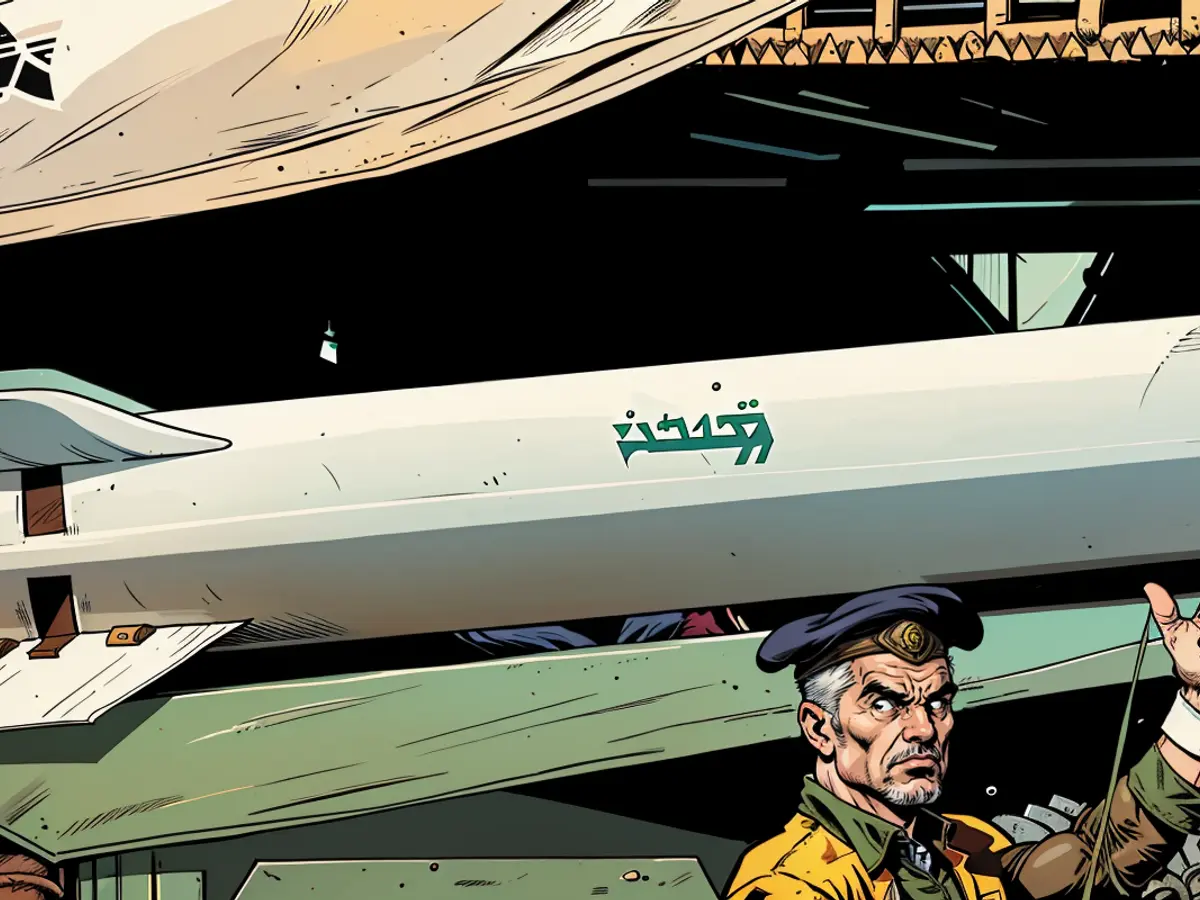- Middle East diplomacy opposes the expansion of war
Ten days after the killing of two high-ranking enemies of Israel in Tehran and Beirut, it remains unclear whether and when Iran and the Lebanese Hezbollah will carry out the threatened massive retaliation against Israel. While the population in Israel appears unfazed, continuing their daily activities, the country's military forces have been on high alert for days. The US, Israel's most important ally, has deployed additional warships and combat aircraft to the region.
Meanwhile, behind the scenes, intense diplomatic efforts are underway to defuse the explosive situation. At the center of these efforts are the long-stalled indirect talks between Israel and the radical Islamic Palestinian Hamas to end the ten-month-long Gaza war and secure the release of more than 100 hostages held by Hamas. The US, Egypt, and Qatar are mediating these talks.
A planned negotiating round scheduled for next Thursday in Cairo or Doha could be decisive. Intensive negotiations on specific aspects of the proposed agreement, such as the future securing of the border between the Gaza Strip and Egypt, are reportedly underway. As Israeli journalist Barak Ravid wrote on "axios.com", the results of next week will show "whether the region is heading towards an escalating, endless war or whether there will be a significant shift for the first time since October 7 (the start of the Gaza war)." Israeli officials described the Thursday round as a "now or never moment."
The Hamas in the Gaza Strip is supported by Iran. The pro-Iranian Shia militia Hezbollah has been firing rockets and drones at northern Israel since the start of the Gaza war, claiming it is in solidarity with Hamas. Substantial steps towards resolving the Gaza war take on added significance as Iran and Hezbollah have repeatedly stated that they want to scale back hostilities against Israel once Israel ends the war in Gaza.
The danger of a regional conflagration has been looming since two leading figures of Hamas and Hezbollah were killed in attacks ten days ago. The Hamas external affairs chief, Ismail Haniyeh, died in an explosion in his room at a guesthouse of the Iranian government in Tehran. Fuad Shukr, a kind of military chief of Hezbollah, was killed in a drone strike in Beirut a few hours earlier. Israel claimed responsibility for Shukr's targeted killing but did not comment on the attack on Haniyeh. Both Tehran and Hamas believe Israel is behind the assassination. Iran and Hezbollah have threatened massive retaliation for both killings.
Playing with fire
Israel and its allies believe they can intercept a large number of rockets, cruise missiles, and drones with modern defense systems. However, if many people are killed, Israel could retaliate with massive force, which could trigger an uncontrollable escalation and a large Middle East war, even if neither side intends this.
Biggest obstacle in Gaza talks recently was the unyielding stance of Israeli Prime Minister Benjamin Netanyahu. With ever new demands, he had blocked steps towards an agreement, even alienating the USA and top brass of his own security apparatus, who participate in talks based on Netanyahu's instructions. Netanyahu governs in a coalition with right-wing and ultra-religious parties, who threaten to topple the government if he makes concessions to Hamas.
Protests against "Lounge Lizard" Netanyahu
Thousands demonstrated in Tel Aviv and other Israeli cities for a Gaza agreement that could lead to the release of 115 hostages held by the Islamist Hamas. "This is our last chance to reach a deal that saves lives," said the mother of a captive at the Tel Aviv rally. "Netanyahu continues to put hostages' lives at risk to keep his seat," she told Haaretz. Further protests were reported in Jerusalem, Haifa, Beersheba, and outside Netanyahu's private villa in Caesarea.
On October 7, 2021, Hamas and other groups from Gaza Strip attacked southern Israel, killing over 1,200 people and taking 250 as hostages. This unprecedented massacre sparked the Gaza War, in which Israel aims to dismantle Hamas and other militant groups in the Gaza Strip.
During a brief ceasefire, over 100 hostages were released, mostly women and elderly. Released hostages reported inhumane conditions, deprivation, violence, and psychological terror. Hamas still holds 115 hostages, with Israel declaring 41 dead. Many more may not be alive.
Dozen Dead After Attack on Refugee Shelter
An Israeli airstrike on a school building in Gaza City killed dozens on Saturday, according to Palestinian reports. A Hamas-controlled Palestinian Civil Defense spokesman said at least 93 died in the building used as a refugee shelter. The Israeli military confirmed the strike, targeting a Hamas command center in the building. At least 19 Hamas and Islamic Jihad commanders and fighters were killed.
Witnesses reported the strike occurred during morning prayers, with the prayer room targeted as it was used by militants. The Israeli Air Force used small-caliber rockets, which could explain the relatively low death toll. Neither side's claims could be independently verified.
EU foreign policy chief Josep Borrell expressed horror at the attack. "At least ten schools have been targeted in recent weeks. There is no justification for these massacres," he wrote on X. The US government expressed "deep concern" over reports of civilian casualties. "We are in touch with our Israeli counterparts, who said they targeted senior Hamas officials, and we seek more details," a National Security Council spokesman said.
The Commission has been closely monitoring the situation in the Middle East, particularly the ongoing indirect talks between Israel and Hamas. The international community, led by the Commission, is urging all parties involved to exercise restraint and promote peace negotiations.








